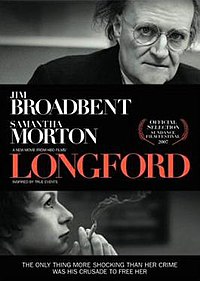LORD CARRINGTON
My Lords, this is the latest chapter in a really extraordinary story. May I ask the Leader of the House a number of questions? First of all, who informed the Government that Mr. Davies would be welcome in Hanoi, and for what purpose would he be welcome? Is it not the case that he was welcome in Hanoi precisely because it was widely known that he was opposed to the American Government policy in South Vietnam? I am bound to say that if this is true (and the reports from Hanoi show that quite clearly it is true) then the choice of Mr. Davies, even if he is Parliamentary Secretary to the Ministry of Pensions, to represent the Prime Minister and the Government is an odd one and not very reassuring. All of us, wherever we sit in the House, want to see an end 25 to the war in Vietnam and South Vietnam, but I think I speak for those who sit on these Benches when I say that we do not think that this will necessarily come about by this sort of strategy.
§ LORD BOWLES
It might.
§ THE EARL OF LONGFORD
My Lords, the noble Lord the Leader of the Opposition has asked me certain questions. First, who informed our Government that Mr. Davies would be welcome in Hanoi? I understand that this information was given by two North Vietnamese journalists in London. I was then asked: for what purpose would he be welcome? I am not quite sure what would be in the minds of the people who said he would be welcome, but the purpose of his going there was to set up a case for the reception of the Commonwealth Mission. That has been the sole object of his visit. The noble Lord the Leader of the Opposition then asked me whether Mr. Davies was selected for this purpose because he was known to be opposed to American policy. I have no knowledge of what was in the minds of the people in North Vietnam. I have no reason whatever to suppose that any member of the Government has given any evidence of his being opposed to the policy of Her Majesty's Government.
§ LORD CARRINGTON
My Lords, may I ask another question? As soon as Mr. Davies got to Hanoi, the North Vietnam authorities stated that in no circumstances was his visit connected with the Commonwealth Peace Mission. Did the noble Earl and the Prime Minister know that before he went there and, if they did, would it not have been wiser to find out?
§ THE EARL OF LONGFORD
My Lords, I should be very much surprised if the noble Lord or any Member of your Lordships' House, whatever he may think of Her Majesty's Government, was prepared to take the word of the Government of Hanoi against the word of Her Majesty's Government.
§ LORD CARRINGTON
My Lords, with respect, I think that the noble Earl has misunderstood my question. I was not for one moment doubting the word of the noble Earl. What I said was that as soon as Mr. Davies got to Hanoi, the 26 North Vietnam authorities stated that in no circumstances was his visit connected with the Commonwealth Peace Mission. They had not changed their mind about receiving the mission. Did the Government know about that before Mr. Davies went and would it not have been wiser to find out what the attitude of the North Vietnam authorities was before sending Mr. Davies?
§ THE EARL OF LONGFORD
My Lords, of course, that is an arguable matter. One can perhaps argue that any peace mission is something of a hazard. But I think that there are a great many people in this country, not confined to any one Party, who think that a great deal must be risked in order to achieve peace at the present time.
§ LORD BLYTON
My Lords, is my noble friend aware that the people of Britain are prepared to accept any avenue if it will bring this calamitous war to an end?
§ THE EARL OF LONGFORD
My Lords, I am sure that what my noble friend has said is the view of a great many people, perhaps the majority of people, in this country.
§ THE MARQUESS OF SALISBURY
My Lords, if I may intervene for one moment, am I to understand that no invitation was ever sent by the North Vietnam Government,
Allez demander au gouvernement Nord Vietnamien !



 LinkBack URL
LinkBack URL About LinkBacks
About LinkBacks





 Répondre avec citation
Répondre avec citation




